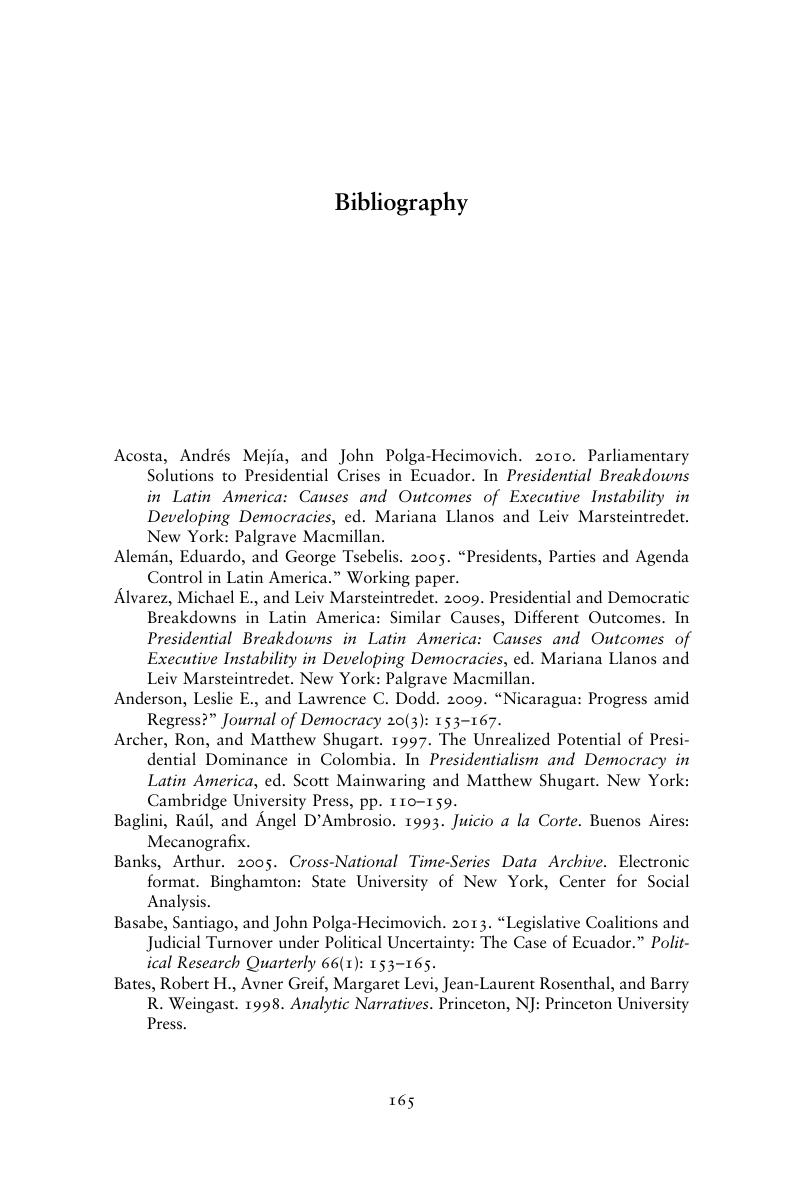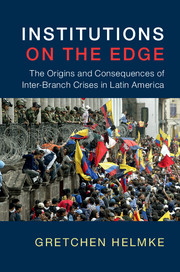Book contents
- Institutions on the Edge
- Cambridge Studies in Comparative Politics
- Institutions on the Edge
- Copyright page
- Dedication
- Contents
- Figures
- Tables
- Preface and Acknowledgments
- 1 Introduction
- 2 Inter-Branch Crises in Latin America
- 3 Institutional Crises as Bargaining Failures
- 4 Why the Mighty Fall
- 5 Constitutional Coups as a Commitment Problem
- 6 Caught in the Cross-Fire?
- 7 Conclusion
- Bibliography
- Index
- Series page
- References
Bibliography
Published online by Cambridge University Press: 20 January 2017
- Institutions on the Edge
- Cambridge Studies in Comparative Politics
- Institutions on the Edge
- Copyright page
- Dedication
- Contents
- Figures
- Tables
- Preface and Acknowledgments
- 1 Introduction
- 2 Inter-Branch Crises in Latin America
- 3 Institutional Crises as Bargaining Failures
- 4 Why the Mighty Fall
- 5 Constitutional Coups as a Commitment Problem
- 6 Caught in the Cross-Fire?
- 7 Conclusion
- Bibliography
- Index
- Series page
- References
Summary

- Type
- Chapter
- Information
- Institutions on the EdgeThe Origins and Consequences of Inter-Branch Crises in Latin America, pp. 165 - 176Publisher: Cambridge University PressPrint publication year: 2017



